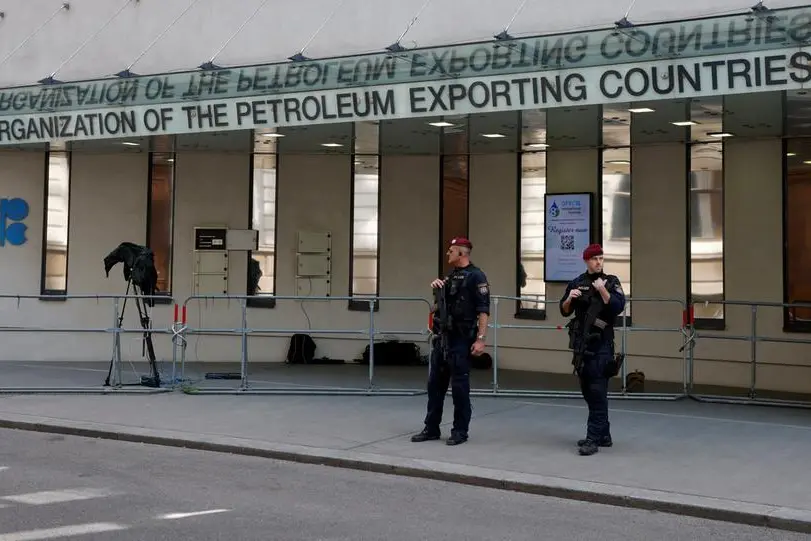PHOTO
LONDON/DUBAI - OPEC has raised its medium- and long-term oil demand outlook in a forthcoming report, three OPEC sources said, despite the transition toward renewable energy, highlighting the oil exporting group's more bullish view compared to other forecasters.
The Organization of the Petroleum Exporting Countries is scheduled to update its long-term oil demand forecasts in its 2023 World Oil Outlook on Oct. 9, which is being launched in Riyadh, the capital of top OPEC producer Saudi Arabia.
Higher oil demand would be a boost for producers and the 13-nation OPEC and would underscore the need for continued investment. It also highlights OPEC's more bullish view on the oil demand outlook compared to the International Energy Agency (IEA) and other forecasters.
"Demand is still going up," one of the sources, who all declined to be named said, describing the upward revisions as not large. Oil use had shown resilience in the last 18 months during periods of high prices, the source added.
OPEC's Vienna headquarters did not reply to an invitation to comment ahead of Monday's launch that will be attended by OPEC Secretary General Haitham Al Ghais, Saudi Energy Minister Prince Abdulaziz bin Salman and other officials.
In 2020, OPEC made a shift when the pandemic hit demand, saying it would eventually slow after years of predicting ever-increasing consumption, although it has since begun raising the forecasts again as oil use has recovered.
The 2022 version of OPEC's report sees oil demand reaching a plateau after 2035. Predictions from the IEA and some other analysts see a peak earlier.
IEA Executive Director Fatih Birol said in an op-ed in the Financial Times in September that new IEA estimates show "this age of seemingly relentless growth" in fossil fuel demand "is set to come to an end this decade."
In response, OPEC said data-based forecasts do not support the IEA's projection, and what made the projections "so dangerous" is they are often accompanied by calls to stop new oil and gas investment.
OPEC and the IEA have repeatedly clashed in recent years, with OPEC criticising the IEA, which advises industrialised countries, for what it sees as irresponsible predictions and subsequent data revisions.
(Reporting by Alex Lawler and Maha El Dahan, editing by Simon Webb and Sharon Singleton)





















